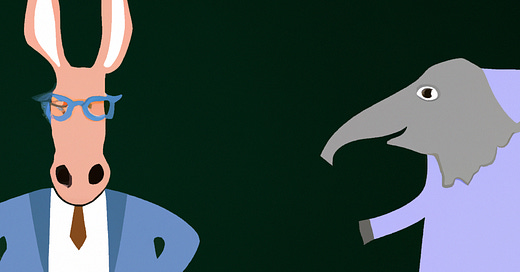Truth, Hubris, and Democracy
Being pretty sure of yourself is pretty bad for democracy, argue the authors of a recent study
TLDR: Liberal intellectuals and conservative anti-intellectuals are both increasingly sure of themselves. That certainty, which a group of political scientists call “epistemic hubris” has no redeeming democratic qualities.
The big picture: In an in-depth, survey-based study, a group of political scientists identify some worrying trends:
Americans on the right and left are pretty confident about their political opinions, even on issues that remain unsettled among experts.
On the political left, unwarranted certainty (epistemic hubris) is associated with intellectualism as an identity “marked by ruminative habits and
learning for its own sake.”
On the political right, unwarranted certainty is associated with anti-intellectualism as an attitude (an “affect”).
That kind of over-confidence may be helpful in launching a new business or launching a long-shot campaign for political office, but it is a serious obstacle to democratic deliberation.
The bottom line: “In contemporary American culture, the authors quip, “the three little words in shortest supply may not be ‘I love you,’ but ‘I don’t know.’”
—
Go Deeper: Read more about how the authors decided what contentious claims lacked clear scientific consensus in either direction:
“If unchecked, the US national debt will cause major economic damage”
“If college were free, there would be much less economic inequality”
“Gun control reduces mass shootings”
“The quality of health care is better in many ways in the US than in Canada”
“Unauthorized immigration hurts the American economy”
“Human life begins at conception”
“Significant increases in the minimum wage reduce poverty”
“Charter schools harm regular public schools”
“When it comes to success, grit is more important than luck”




